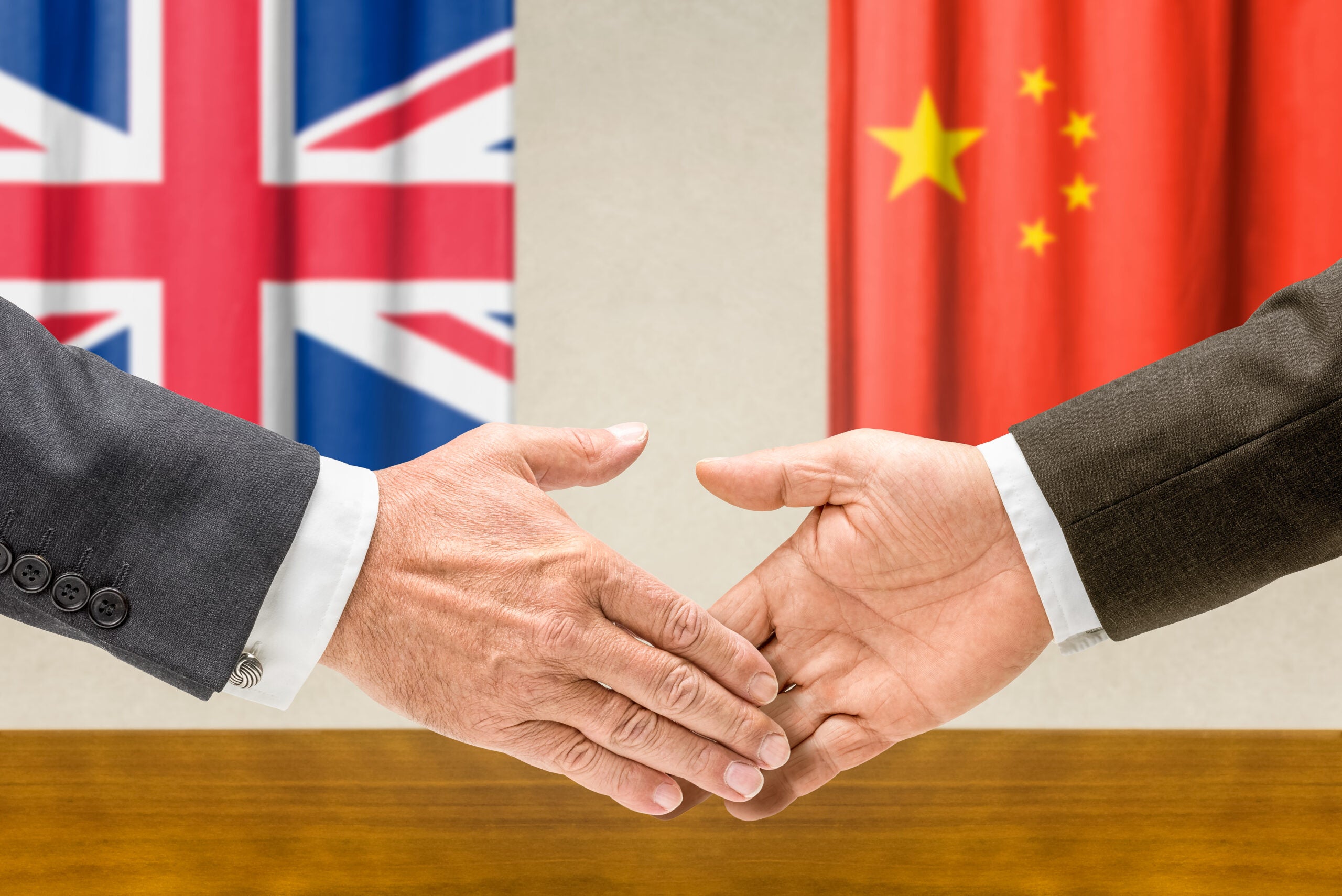
British-Chinese tech deals never seem to make it to the finish line. Every time a deal is announced it seemingly only becomes a matter of time before the UK government pulls the plug on it, citing national security concerns.
That is what happened when a deal between the University of Manchester and Beijing Infinite Vision Technology imploded in July, 2022. The deal would’ve allowed the university to license its solutions to the Chinese semiconductor company, which specialises in architectural visualisation.
The university had agreed to license its SCAMP-5 and SCAMP-7 vision sensors to Beijing Infinite Vision Technology. The sensors could be used in things like autonomous robots or, as the government feared, in military drones and missiles.
Those fears motivated Kwasi Kwarteng, secretary of state for business, energy and industrial strategy (BEIS), to pull the plug on the deal in July. He issued a notice of final order against the deal under the National Security and Investment Act.
Kwarteng warned that there was “potential that the technology could be used to build defence or technological capabilities which may present national security risk to the United Kingdom”.
While it was certainly not the first deal to collapse between a British and a Chinese firm, market watchers now fear that tensions between the two countries could worsen
How well do you really know your competitors?
Access the most comprehensive Company Profiles on the market, powered by GlobalData. Save hours of research. Gain competitive edge.

Thank you!
Your download email will arrive shortly
Not ready to buy yet? Download a free sample
We are confident about the unique quality of our Company Profiles. However, we want you to make the most beneficial decision for your business, so we offer a free sample that you can download by submitting the below form
By GlobalData“The recent block of the University of Manchester’s deal will undoubtedly lead to increased scrutiny of academic partnerships and exchanges, in addition to business deals,” Alex Barton, MD of Intralink China, which helps western tech firms expand in China, tells Verdict.
“Universities, research institutes and other academic organisations will likely be more wary when dealing with Chinese partners and will face the same challenges as businesses operating in China.”
Barton adds that “the vetting process for Chinese partners, particularly those with government links” could become stricter as a result of the government’s intervention.
He could have a point. After all, the implosion of the British-Chinese deal came in the same month as members of the House of Lords vehemently called for Parliament to delete its TikTok account.
“We cannot and should not legtimise the use of an app, which has been described by tech experts as ‘essentially Chinese government spyware,’” said MPs in the open letter shared on Twitter by Politico deputy editor, Eleni Courea.
The Parliament’s TikTok account was closed down and its content deleted on 3 August, only a week after its launch.
“It is disappointing that Parliament will no longer be able to connect with people who use TikTok in the UK,” says a TikTok spokesperson.
Not the first British-Chinese tech deal to fall apart
The University of Manchester deal is only the latest in a long line of British-Chinese deals to fall through.
The botched sale of British chip designer Arm to NVIDIA is one of the most well-known examples to date. In September 2020, Verdict reported that Japanese conglomerate Softbank agreed to sell Arm to American based Nvidia for a cool £29bn ($40bn). Chips designed by Arm can be found in virtually every smartphone on the planet.
However, things didn’t unfold quite like those different parties expected. Over the next year, the sale of the Cambridge-based Arm was investigated by US, UK, EU and Chinese regulators who were concerned about what the deal could mean for national security and for competition.
Despite SoftBank‘s attempts to propitiate regulators and law makers with assurances that the deal wouldn’t threaten national security or choke competition, the deal fell apart earlier this year. The plan now is to take Arm public in the States, which has irked the British establishment to no end. They would rather see it float in London.
The collapse of the Arm deal follows a 2020 UK governmental decision to ban Chinese company Huawei from working on the rollout of 5G and to be removed from the country by 2027. The first step of the removal saw new Huawei 5G products and equipment banned from 2021.
In 2022, the UK government launched an assessment into the takeover deal of the UK’s biggest microchip and semiconductor plant, Newport Wafer Fab. The South Wales plant is based there by Netherlands-based but Chinese owned company Nexperia.
What are the main reasons deals fall apart?
So why do British-Chinese tech deals keep imploding? There are several reasons for that.
“Firstly, some deals may involve potential espionage, where a tech deal could compromise [intellectual property], company secrets, or methodologies,” Daniel Clarke, analyst at research firm GlobalData, tells Verdict.
“Secondly, deals can allow access to areas of national security, creating significant risks. Thirdly, there is the human rights aspect.”
While Barton recognises the risk of intellectual property falling into the wrong hands by dealing with Beijing-backed firms, he believes firms “can take many practical steps” to protect themselves. For instance, he encourages firms to keep hold of their core intellectual property by selling technology as a black box.
“For example, [they could avoid] sharing material composition or source code or undertaking the assembly of key components before shipping to China,” Barton says.
Alan Calder, CEO at governance and risk company GRC International Group, says Chinese companies have also taken over foreign company IP. He says this accelerated their own competitiveness in tech.
“Simultaneously, Chinese companies are unable to operate independently of their government,” says Calder. “It’s about time that the UK government interfered firmly in the preparedness of UK organisations to allow a future of adversary opportunities to compromise them.”
The threat to national security
The threat to national security is probably the most cited reason for British-Chinese tech deals falling apart.
This was highlighted in a joint address delivered by director general of MI5 Ken McCallum and director of the FBI Chris Wray this summer where they called for vigilance against Chinese threats.
McCallum said the aim is not to cut off China or prevent British-Chinese tech deals, but emphasised that these deals come attached to higher risks.
“The UK wants to engage with China wherever it’s consistent with our national security and our values,” he said. “There are situations where the risks are sharper – and you’d expect the head of M15 to focus on those.”
The MI5 head suggested that tech companies should be cautious. They can attract a lot of attention from China.
“If you are involved in cutting-edge tech [such as] AI, advanced research or product development, the chances are your know-how is of material interest to the CCP,” McCallum said.
“And if you have, or are trying for or [have] a presence in the Chinese market, you’ll be subject to more attention than you might think. It’s been described as ‘the biggest wealth transfer in human history.’ MI5 teams see the CCP working to extract UK advantage in multiple ways.”
A GlobalData report suggests that UK could have increased security issues if it becomes too dependent or connected to Chinese tech.
The impact of Chinese tech deals on human rights
When it comes to human rights, privacy has been a key concern in for British parties in Chinese deals.
“Cybersecurity is a human rights issue. It’s time more governments start treating it like one,” Deborah Brown, senior researcher and advocate in digital rights at Human Rights Watch, wrote in May. “Governments like China and Vietnam use cybersecurity as an excuse to exercise more control over the internet and further restrict rights.
Human rights have also been cited as the main reason why the US sanctioned 11 new Chinese companies, preventing them from buying American tech without a special licence in 2020.
“The firms were complicit in human rights violations in China’s campaign targeting Muslim minorities in the Xinjiang region,” reported Ana Swanson at The New York Times.
Recently, 67 MPs and lords advocated for banning the sale of Hikvision and Dahua surveillance equipment in the UK, citing links to human rights violations. Hikvision responded by accusing anti-CCTV “fringe groups” of “demonising” the company.
Does China still have something to offer the UK?
With all the trouble they have to go through, why are Chinese companies interested in dealing with British firms? There are several reasons for that.
For one thing, it enables them to skirt the growing tensions between Beijing and Washington.
“Acquiring British tech offers Chinese companies a less politically-sensitive option than looking to the US, given the current China-US geopolitical tensions,” says Barton.
A second reason is that they give Beijing sway over countries. After all, it is easy to see the allure of more money and more jobs being created.
“Chinese companies regularly look to the UK for investment as a means of debt diplomacy,” Morgan Wright, chief security officer for cybersecurity company SentinelOne tells Verdict.
“The lure of investment dollars is always tied to some degree of control, Besides acquiring sensitive technologies, ownership control can be just as effective, installing executives who follow the ‘party line’, including the goals of the Chinese Communist Party.”
For whatever reason Chinese companies wants to team up with British firms, it is clear that there is a trade-off to rejecting deals.
“Removing Chinese technology or banning investment in certain areas can benefit national security while hurting economic security,” argues Clarke. “Any potential ban will mean local governments, the NHS, and government agencies will have to rip out and replace the equipment, which is costly.”
Barton believes that the threat for western tech companies from China will eventually recede.
“Most Chinese companies understand they will miss out on all the benefits of collaborating with innovative global firms if their business practices leave anything to be desired,” says Barton.
“The advantages of succeeding in China can be huge and the threats can usually be managed. Any UK company serious about making it there should develop a focused market growth strategy, continually innovate to stay ahead and to invest in in-country support.”







